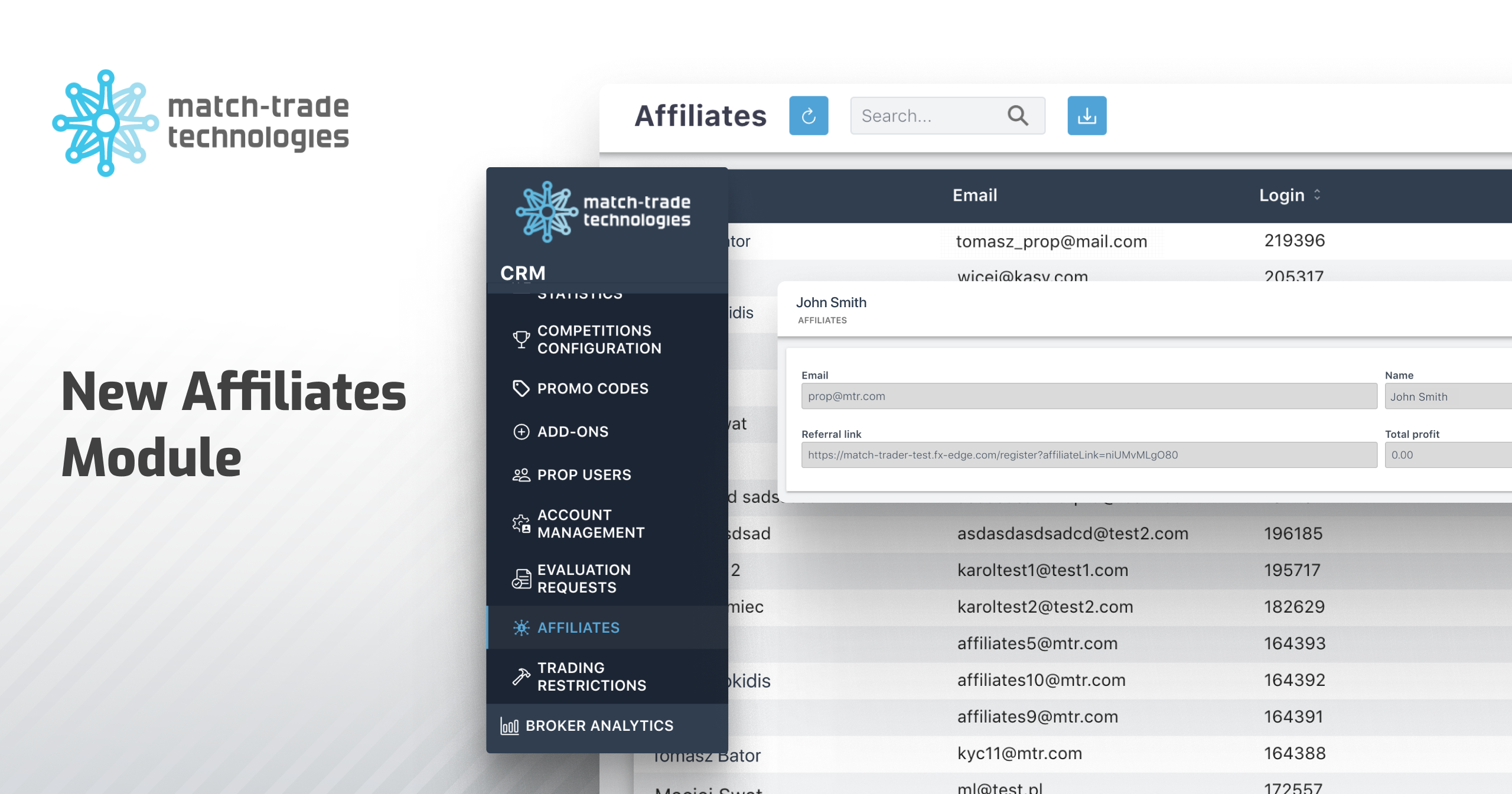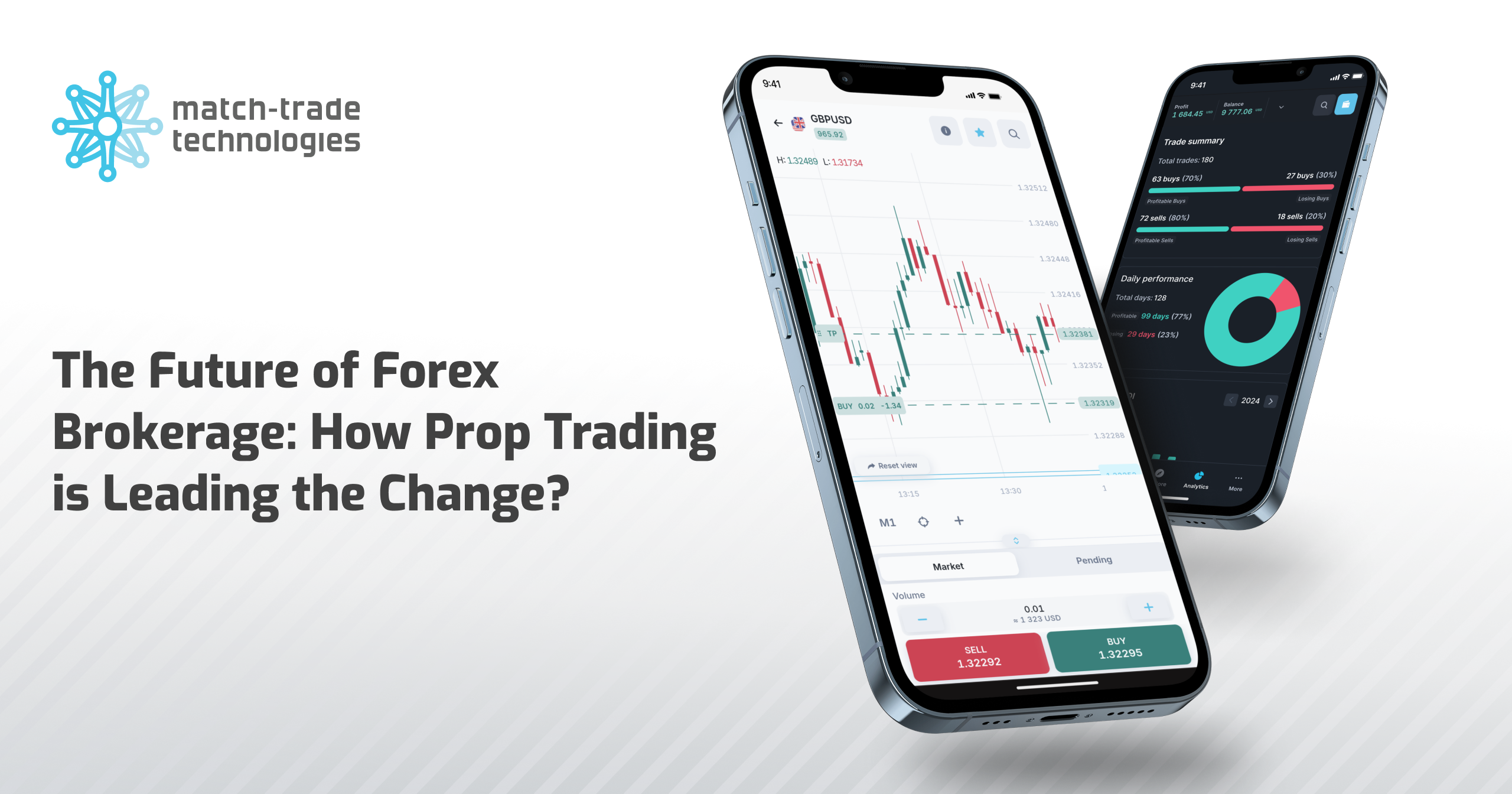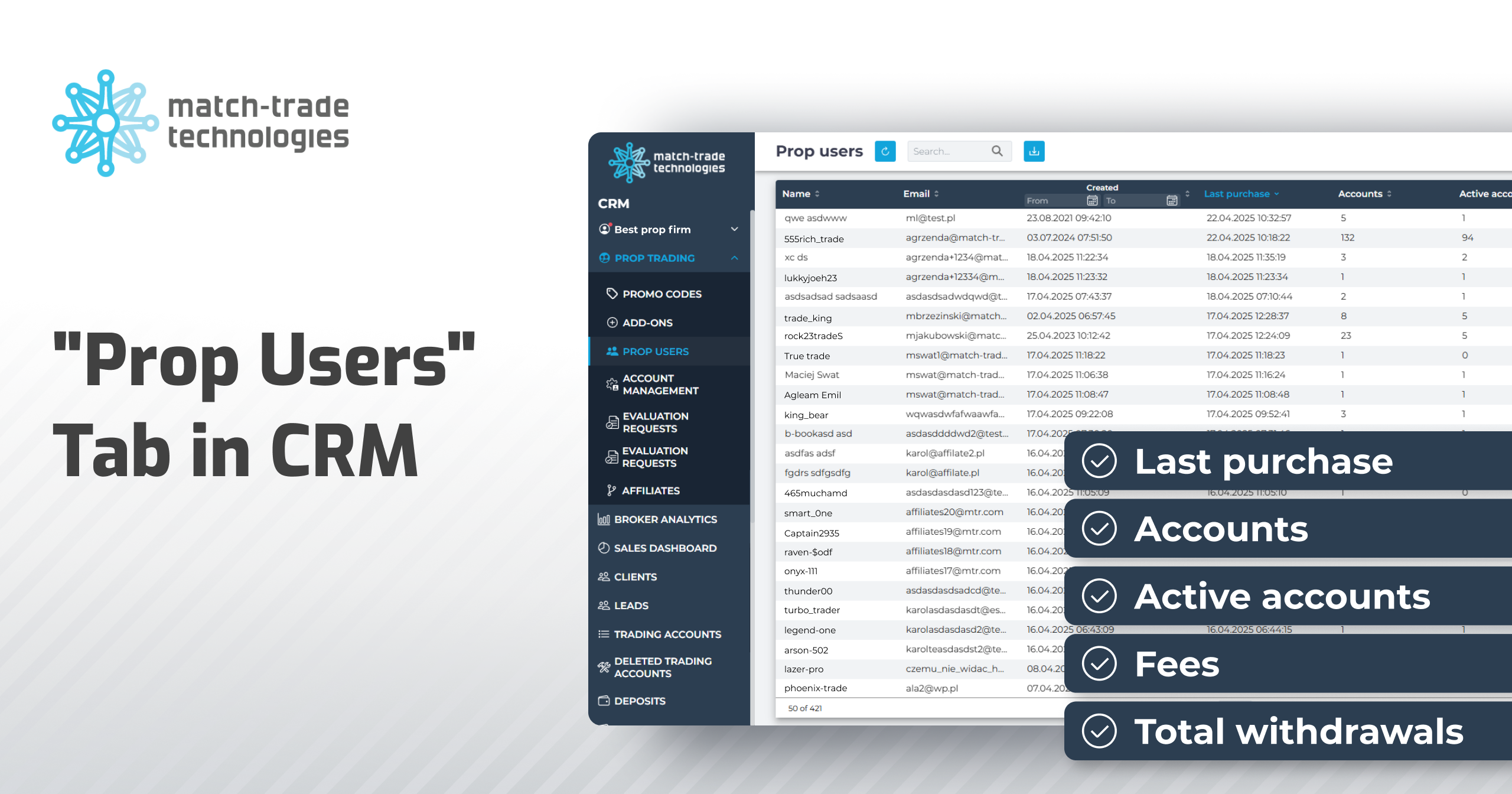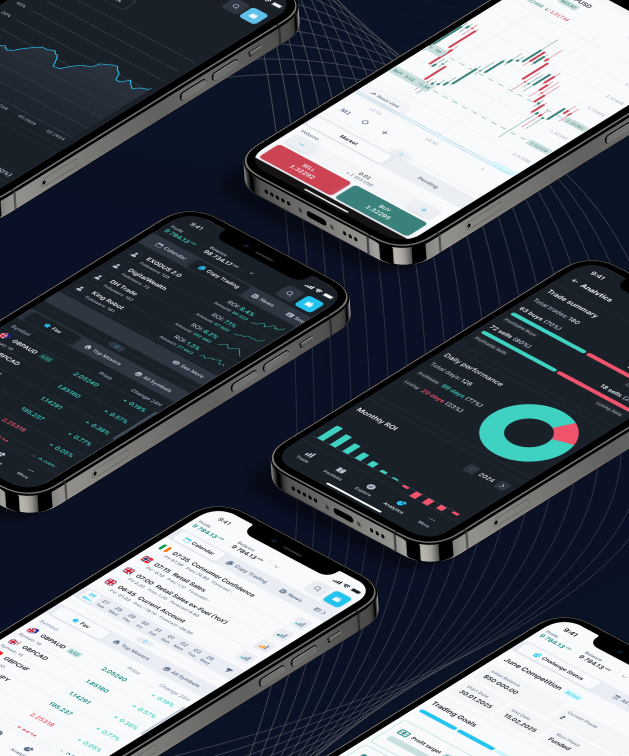The Match-Trade Technologies team is used to participating in industry events, and we are passionate about contributing to expert discussions covering various aspects of the forex business. With a decade of experience in the market, we are excited to share our knowledge and insights. At the iFX EXPO Cyprus 2023, we engaged in a panel conversation centred around White Label products and their ability to meet client demands. The discussion focused on the advantages and drawbacks of White Label solutions at different phases of business growth. At the same time, it took into account the distinct needs of startups as well as established brokerage brands.
The discussion panel took place on September 21 and consisted of 5 exquisite representatives of the industry: Anastasia Taganova (Head of Multi Label Department, Tools for Brokers), Anton Sokolov (Marketing Manager, Brokeree Solutions), Dmitri Balabanov Makrides (Head of Dealing on Own Account, Quadcode) and Ran Strauss (CEO & Co-founder, Leverate). Accompanying to them was Michael Nichols, Head of Sales at Match-Trade Technologies. Hereby we are presenting the key insights coming from this vivid discussion.
White Label market saturation
The key difference between Main Label (Server Licence) and White Label trading platforms should be regarded in terms of convenience in operations. Also, in the amount of freedom it provides to the users. Surely, the current level of market saturation with White Label solutions would decrease time-to-market for new businesses and new ideas. Especially concerning startup companies, who tend to appreciate low-cost, plug & play solutions.
Main Label vs White Label
When considering the cost implications, White Label solutions undeniably offer vital savings in both money and time. Those are the two invaluable resources for novice brokers. Particularly for startups, these savings are crucial. The White Label model significantly reduces the barriers of entry into the brokerage market. It’s evident that many startup brokers gravitate towards this model due to its capacity to deliver substantial cost efficiency. It also allows to save time on the time-consuming building and maintaining infrastructure. Surely using a Main Label trading platform offers greater control over management and branding freedom. However, it’s crucial to recognize that White Label should be regarded as a comprehensive solution that provides everything needed.
“This aspect might be particularly worthwhile for smaller, newer companies. Allows them to concentrate on development, marketing, and business growth, while technology providers handle the intricate groundwork. Essentially, it enables businesses to concentrate on their actual operations and leave the technological aspects in capable hands” – diagnoses Michael Nichols, Head of Sales at Match-Trade Technologies.
Is there any incentive for larger, established brokers to explore White Label trading platforms? Conventional wisdom suggests that bigger brands often find little to none justification in adopting White Label. Which at the same time is a trend evident in the market. However, this viewpoint doesn’t consider all potential aspects. Even sizable brokerages might view this model as a trial, even for prominent brands, to assess the platform’s suitability for their needs.
Risks associated with WL
Selecting the appropriate technology provider is a vital decision and a pivotal factor to consider. The stability and growth of a business hinge on how well the trading platform provider fulfils their contractual commitments. Also, on the integration options they offer to their clients.
A provider offering a suitable agreement tailored to the company’s needs ensures a solid establishment for the business. This choice has the potential to seriously influence its future success. While it may seem that a brand adopting the White Label trading platform becomes bound to a particular package or infrastructure, this choice actually offers users considerable customisation freedom. Using one’s own branding and styling the platform to align with the established brand identity is particularly advantageous for beginners seeking opportunities to reinforce their trademark on the difficult and competitive market.
Freedom of customisation
While customisation options are extensive and flexible in the current market, providing brokers with numerous choices for shaping their business solutions, they are not always free or all-inclusive. Pricing for certain features or additions can vary based on the technology provider. Consequently, the total cost associated with the selected White Label platform might end up being higher than the initially presented figure.
Additionally, certain features might not be accessible to users due to the technology provider’s policies, such as order modification, a feature many platforms discourage. The same limits apply to integrating with different types of third-party solutions like plugins and bridges. Most White Label providers are wary to provide this option, preferring to limit integrations to fundamental tools such as CRMs or APIs for security reasons.
WL for startup brands
A crucial consideration when launching a startup brand and seeking appropriate regulation is selecting a technology provider licensed to operate under the same regulation. The jurisdiction should be examined with as much care as assessing the capabilities and support range of the technological partner. There is a general understanding that the right tech provider significantly helps in the business launch and success by increasing efficiency and ensuring regulatory compliance.
The second aspect of launching a startup brokerage business is acknowledging the unpredictability of the future, given that the available jurisdictions are not permanent. The decision-making process is challenging, essentially balancing between investing a significant amount in a licence for business stability and being uncertain about what the future holds, similar to sitting on a precarious chair without knowing what tomorrow might bring.
Michael Nichols points out that “there are diverse approaches available when deciding the extent of investment in different types of licences or launching the business under a legal entity of a technology partner. The licence owned by the payment provider we select also plays an important role. While finding a reliable payment provider is challenging in itself, the hurdles don’t end there. It’s not always apparent that a trustworthy provider will be willing to cooperate with us and our chosen jurisdiction.”
Regardless of the choice made by an emerging broker, the vital factor to consider is selecting a technology provider who already meets all the regulatory requirements from the start.
Trends on the White Label market
In the realm of White Label industry trends, the standout aspect has been the rapid integration of Artificial Intelligence (AI). All participants agreed on AI swiftly becoming an integral and perhaps even unavoidable element in the professional practices of Forex brokers. Components like chatbots for service and support, or machine learning in reporting, are becoming increasingly prevalent. This trend is clearly irreversible. Automation, in its various forms, is currently moving towards increasing efficiency and simplifying our lives, permeating multiple sectors and directions.
Simultaneously, mobility has transitioned from a trend to an industry norm. Looking at statistics, sometimes as much as 80% of traders and trades originate from mobile platforms. This shift in client behaviour has created a demand that is now a fundamental requirement for both technology providers and brokers. It is widely acknowledged in the industry that having the best mobile trading platform is essential for brokers today.
Michael Nichols summarises the whole discussion by saying that “the essential factor is identifying technology providers dedicated to innovation and adaptable to your growth, rather than just adhering to standard offerings. Providers must evolve alongside the market, keeping pace with observed trends such as mobile solutions, customizations, server options, and even emerging concepts like prop trading. It’s crucial to stay innovative and responsive to the evolving needs of our brokers.”
The discussion panel held on September 21, 2023 during iFX EXPO Cyprus, can be watched below:





